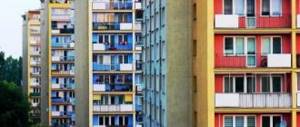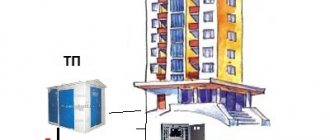Home » Tenant » Do tenants pay for major repairs?
October 24, 2020 No comments
Key Concepts
The main parties to a lease agreement are the lessor and the lessee. Whereas the object of the agreement is an apartment that is in an appropriate condition for living.
It is noteworthy that the living area of the apartment must necessarily comply with the standards that were determined by federal regulations.
The characteristics of the object are considered as an important condition for the agreement of the participants.
List of responsibilities of the parties
Such responsibilities are determined by Russian legislation and the social rent agreement.
We list the most important of them:
| Maintaining order | cleanliness of living space, as well as common property of an apartment building |
| Maintenance of a residential apartment | equipment that is in it in appropriate condition, guaranteeing their safety. If defects or breakdowns are identified, the tenant undertakes to eliminate them by notifying the management office (as required), as well as the lessor |
| Compliance with basic principles | use of living space pre-established by Decree of the Russian Government No. 25 |
| Notice to the landlord | about any changes in separate conditions affecting the tenant’s right to occupy the premises in accordance with the social tenancy agreement |
| Transfer within the approved time frame | rent, as well as payments for housing and communal services |
| Participation in implementation | ongoing repair work |
| Use of living space | for its intended purpose |
As for the obligations associated with the implementation of current repairs, in this case a note is provided on the list of works that the tenant undertakes to perform, in particular, painting, whitewashing, wallpapering ceilings, walls, etc.
If there is a need to carry out other work related to the breakdown of certain structures of the common property or if a defect was discovered after a major overhaul, such work is carried out at the expense of the lessor.
How to resolve the issue
Such things should be discussed in advance by the parties “onshore”. This issue may not arise at all if no one takes a stand. Sometimes it is not difficult for either the owner or the tenant to repay the payment. The problem comes when both refuse to do this. It is important to remember here that the law is on the tenant’s side, so he has the right to insist on his own to the end. Payment for the modernization of common property in an apartment building should not fall on his shoulders, unless the tenants themselves agree to this condition - to pay for major repairs. If a popular explanation of one’s rights and a firm refusal to sign an agreement with this clause do not affect the owner, then it is worth looking for another housing where the landlord will be guided by the law, and not by his own desire, to make money on rent and save on repairs.
>>>
Payment for housing and communal services
Utility bills can be paid in the following ways:
| In accordance with consumption standards | which are determined by local government structures |
| According to the quantity consumed | installed using personal metering devices |
Provided that the utility service was provided intermittently or was of inadequate quality, its cost is reduced several times. This fact has been determined by the Russian Government.
If funds for rent and utilities have not been transferred for six months, this is considered a valid reason for terminating the social rent agreement.
Only a judicial authority has the right to decide to terminate the contract.
What is included in housing and communal services
According to the current standards of the Russian housing complex, utilities include fees for:
- drainage;
- solid heating oil, gas;
- consumption of thermal and electrical energy;
- cold, hot water supply.
Do I have to pay these bills?
According to the Federal Law, each owner is obliged to participate in collecting funds for major repairs , since they are included in standard payment documents for housing and communal services (Article 169.1 of the Housing Code of the Russian Federation).
If he does not pay the receipts on time, or does not do so at all , penalties will begin to accrue if payment is not made by the 20th of the current month (for the past month) .
If the owner constantly ignores receipts, the debt (including penalties) can be collected through court . Also, along with the debt, he will be forced to pay legal costs.
No one can evict a defaulter from an apartment , but various restrictions will apply, including a ban on leaving the country.
Carrying out major renovations to your home does not relieve you of your responsibility to raise funds. They will “accumulate” until next time.
Is the tenant required to pay for major repairs?
According to the terms of the social tenancy agreement, current repairs in the apartment are carried out at the expense of the tenant, while major repairs are carried out at the expense of the landlord.
In other words, the apartment owners transfer funds for him. For example, a person who has privatized a living space pays money towards planned major repairs.
Specifics of renting a house
Similar rules are provided if the tenant occupies a private house that is in municipal ownership. In the situation under consideration, the municipality undertakes to carry out major repairs.
Legislative regulation
The law states that the tenant is obliged to bear the costs solely for carrying out routine repairs.
This means that if he receives receipts requiring him to transfer money for capital repairs, he has the right not to pay them.
Such actions are qualified as a violation of the standards of the Housing Code of the Russian Federation and the Civil Code of the Russian Federation.
Fee for major repairs of a municipal apartment
Relatively recently, the government adopted a law on major repairs, which did not please property owners. At the same time, the question arises whether the tenant should pay for major repairs if the apartment is not fully owned. Let's look at this issue in this article.
Housing Payment Law
It won’t work to pay for anything at all; they don’t provide citizens with a single apartment for free. Therefore, you will have to pay for the maintenance and current repairs of common property, as stated in Article 678 of the Civil Code of the Russian Federation.
It says that tenants must use rented municipal housing only for living, while maintaining it in proper condition .
They cannot organize various redevelopments without the consent of the landlord. They are also obliged to pay for the rental of residential premises within the specified time frame.
Unless otherwise specified in the contract, they must pay the fee themselves.
At the same time, to the question whether the tenant is obliged to pay for major repairs if the apartment is owned, the answer is yes. According to Articles 158 and 169 of the Housing Code, who owns the premises, that is, the tenant, pays for the work. Then the question arises: in the case when the apartment is not privatized, who will pay for major repairs?
Tenants do not make contributions towards capital repairs of public premises, because this is the responsibility of the owners, represented by the municipality or the landlord.
Copyright holders pay for major repairs, and when receipts are received at the tenants’ address, they must be redirected to the apartment owner, at whose expense such work is paid.
At the same time, you need to pay for premises that are subject to repair - both residential and public, and uninhabited, they are included in the program.
Payment for major repairs
So, who pays for future major repairs if the apartment is municipal? This must be done by the owner of the non-privatized apartment, that is, the municipality.
The tenant is not obliged to do this, since he is not the owner and, according to Article 154 of the Housing Code, does not bear any obligations for such work.
The payment for housing and communal services includes only the following items:
- for rent of municipal premises;
- for maintenance and ongoing repair work inside the apartment;
- for gas, water, garbage removal and other utilities.
Therefore, paying for major repairs in no way falls on the shoulders of employers , although many are sure that it is necessary to pay.
No, only owners of residential premises need to make contributions to the fund for the work being carried out.
But in some cases, the differences between current and major repairs are quite illusory, and not only owners, but also tenants have to pay for such work.
Responsibilities of the employer
The main responsibilities of the tenant are payment for received utilities on time and maintenance of the premises. However, he does not pay property taxes.
In addition, the tenant is obliged to use the rented premises only for its intended purpose, and he must keep it in good condition. It follows from this that he is obliged to carry out routine repairs on time, to prevent dilapidation and damage to the living space. Similar works include:
- painting the ceiling, doors and windows;
- wallpapering walls;
- painting batteries and pipes.
If the doors and windows become unusable, the tenant is obliged to replace them with new and serviceable ones. Also, if necessary, it is necessary to repair electrical, gas wiring and other communications.
To do this, you need to call professional specialists. Redevelopment work on the premises without the consent of the landlord is prohibited.
But work on common property falls on the owner, who must pay for it, that is, this is the responsibility of the public service.
If bills are received to pay for major repairs for a tenant, they must be sent to the owner of the premises. When such receipts are received by social rented tenants, there is no need to pay a fee, but it is worth contacting the Management Company, which will sort out such a mistake, because paying for major repairs is the responsibility of only the owners.
Calculation of contributions
Their sizes vary from place to place. The amount is directly dependent on the deterioration of the house and the presence of an elevator system. From this it is clear that in dilapidated Khrushchev and Stalin buildings, major repairs will be more expensive than in Brezhnev panel houses.
All work is carried out only within the established time frame, which depends on many factors:
- age of the building;
- money collected by the owners;
- date of the last capital work carried out.
The payment should not be less than that established by municipal authorities, but it may be more when it is decided by the homeowners. Such a fee is calculated simply - square meters are multiplied by the price per 1 square meter.
Funds are transferred in two ways:
- To the account of a separate residential building opened for this purpose.
- To the account of the regional operator.
In the first case, the movement of funds can be tracked, but this is also a great personal responsibility that the homeowners bear. That is, choosing a financial organization, appointing an account owner, calculating planned work, etc. In this case, it is necessary to report to regulatory authorities every three months.
But in any case, residents of a state apartment are not required to pay for major repairs in a municipal apartment if it is not privatized. If you receive receipts with the corresponding column, then you should go to the Management Company and resolve such a misunderstanding regarding payments. You can also simply ignore and not pay - this will not violate the current legislation.
Source: https://ozhkh.ru/kvartira/kapremont-munitsipalnoj-kvartiry
Resolving the issue in court
If there are unsubstantiated complaints related to the payment of capital repairs, the tenant has the right to initiate an appeal to the court.
As a rule, conflict situations arise for the reason that it is extremely difficult to distinguish between major and current repairs.
In such conditions, it is worth relying on the Methodological Instructions, which preset a list of works classified as both the first and second types.
What to do if a tenant does not pay rent on time, see here.
Video: How not to pay for major repairs. Instructions
(No Ratings Yet)
Who counts the amount and how and prints the receipts
This amount is calculated by the following organizations:
The amount is calculated based on the area of the premises, according to the title document and the tariff. The tariff is approved by the region.
The fate of the accumulated funds for major repairs (including the accumulated debt) follows the fate of the premises. That is, when buying an apartment with a debt for major repairs, the obligation to pay for it already passes to the new owner.
Often, the issuance of receipts is accompanied by a large number of errors: the estimated area is incorrectly indicated, the owner's surname is written incorrectly, or another person is entered instead of the owner. In this situation, you need to contact the UO, HOA, LCD or RO with supporting documents.
It is important to understand! Ownership of the premises begins from the moment of its registration in Rosreestr. Accordingly, it is on this same day that the obligation to pay for major repairs begins, and not earlier.
Very often this is the cause of disputes related to the privatization of housing in apartment buildings.
Responsibilities of the employer
The tenant must use the apartment only for living, ensure the safety of the housing and maintain it in good condition. The tenant does not have the right to carry out refurbishment and reconstruction of the apartment without the consent of the landlord. The tenant must transfer money for housing on time.
If the agreement does not stipulate this, the tenant must independently close the payments.
Do I need to pay for major repairs if the apartment is not privatized? Judging by the law, it is the owner of the apartment who must pay. Should tenants pay for major repairs?
If the housing is not the property of a person, that is, he either rents it or lives under an official contract, the payment for major repairs of a municipal apartment falls either on the municipality or on the owner of the premises. If such receipts are sent to the address where a commercial tenant resides, they must be sent to the owner of the premises.
Moreover, according to the law, contributions are required to be transferred for all - both inhabited and non-residential apartments of the building included in the capital repair program.










